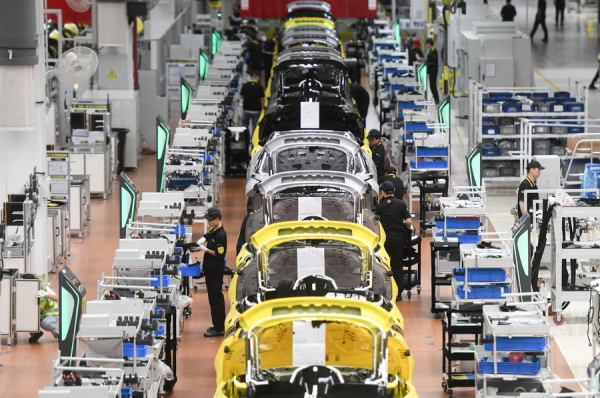Over the past four years, China has significantly shifted its focus of exports from developed markets to the Global South. Simultaneously, it has established production facilities across the Global South, enabling re-exports to developed markets and bypassing tariffs imposed by countries like the US.
Some Western economists have raised concerns about China’s export strategy, suggesting that it may be selling goods at lower prices due to deflation. There are fears of a repeat of the early 2000s “China shock,” when the country’s entry into the World Trade Organization led to an export boom that disrupted industries in the US and elsewhere.
While the yuan’s depreciation after adjusting for inflation has contributed to higher exports from China, it’s essential to note that China’s real effective exchange rate has actually risen over time, according to the Bank for International Settlements. Despite this, China’s exports have surged, unlike Japan, whose exports stagnated despite a significant decline in its inflation-adjusted exchange rate.
China’s success in exporting electric vehicles (EVs) to the Global South, such as the affordable BYD Seagull priced at $9,500, reflects a demand for inexpensive yet reliable transportation options in these regions. This drastic reduction in EV prices is attributed not only to currency fluctuations but also to economies of scale in vehicle production. China’s heavy investment in industrial automation, including the installation of more industrial robots than the rest of the world combined, has contributed to this scale.
Similar patterns are observed in other industries, such as telecommunications, where Chinese companies like Huawei have achieved remarkable cost reductions. For instance, while a Huawei 5G base station reportedly sold for $57 in 2020, recent sales to China Mobile were reported to be as low as $13 per unit.
Despite these shifts in export destinations, China’s exports to developed markets have remained relatively stable, underscoring the country’s versatility and adaptability in navigating global trade dynamics.















































